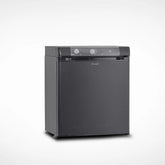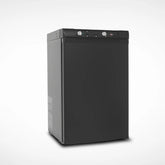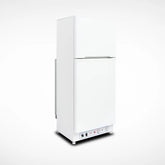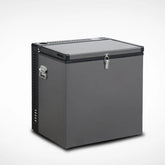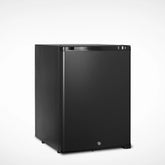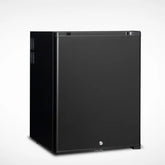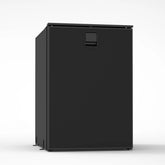When should you change your fridge?
A reliable fridge could last more than ten years but it is far less than a lifelong family member. It might seem that the most economical option is to keep it going for as long as possible, but actually, if your fridge is aging, keeping it going may be less budget-conscious than you think.
When a refrigerator is near the end of its life cycle, maintenance-related problems may cause you tons of inconvenience as well as repair fees. Besides, an outdated fridge uses an excessive amount of electricity as it tries to maintain a suitable temperature, accounting for the high payment on electric bills.
Because a refrigerator is on all the time, it is one of the domestic appliances that use the most electricity. New fridges are made to be more energy-efficient whose technology concerned is improving all the time. In this way, it’s possible that you could make a saving on your electricity bills by replacing your old appliances especially when it has been in your home for more than one decade.
Apart from the cost, the most serious problem that an old appliance may cause is its safety. On the one hand, bacteria are a danger if your fridge is not keeping your food at an ideal temperature; on the other hand, there is also an increased risk of electric shock from old electricity wiring, which, over time, can become fray and exposed.

To avoid the extra cost and potential safety issues, you need to recognize the signs about when you should change your fridge.
1. The frost is built up increasingly inside the freezer.
2. The food stored in the fridge tends to go bad before its expiration date. An outdated refrigerator with incapable power can cause food to turn bad before the expiration date.
3. The back of the fridge feels warm or hot than normal. The refrigerator's motor is installed back where a refrigerator typically feels warmer than the sides or the front. But if the rear exterior surface radiates a large amount of heat, the motor may be running too hot.
4. You notice there is an ongoing buzz or hum which is noisier than it used to be. Most refrigerators emit a gentle hum, but when your appliance has recently started buzzing loudly, the motor might be struggling to work properly. Try unplugging the fridge and plugging it back into the socket. If the buzzing doesn't stop, your fridge is probably dying.
5. Conversely, if your refrigerator is quieter than usual where the food also becomes warm, it points to a damaged compressor. When confronted with this unusual issue, you can unplug the fridge and plug it back first to troubleshoot your home’s electrical panel to make sure a breaker didn’t flip. If the issue persists, it’s time to consider changing your fridge.
6. There’s condensation on either the inside or outside of the appliance, which indicates that your fridge has cooling issues. If the moisture appears only on the exterior, check the door seal—you can easily replace a faulty seal on your own. If the seal looks fine, or if condensation also appears on the inside of the fridge, then the appliance’s internal temperature isn’t cold enough to keep food good, and it's probably time to replace or call a repair man.
Besides the issues mentioned above, there are other problems to make you weigh up the benefits of getting your current fridge repaired versus investing in a new appliance.
There’s a good rule of thumb to bear in mind if any of the malfunction of your appliance. If it’s more than halfway through its probable lifespan, and if a repair will cost more than half of the cost of a replacement, then it’s probably time to change your fridge.
Featured Products
SMAD 1.4 cu.ft Mini Gas Propane Refrigerator, 3-WAY Small Portable Camper Fridge
- $379.08
$427.90- $379.08
- Unit price
- / per
SMAD 2.1 cu.ft (60 liter) 3 Way Propane Fridge for Caravan, Camping Refrigerator without Freezer
- from $459.88
$504.90- from $459.88
- Unit price
- / per
SMAD 3.5 cu.ft Propane Refrigerator with Freezer, 3 Way Gas Fridge Freezer
- $1,103.08
$1,274.90- $1,103.08
- Unit price
- / per
SMAD 6.1 Cu.ft Propane Refrigerator with Top Freezer, Gas Electric 2 Way Fridge for Off-grid Living
- $1,508.00
$1,686.00- $1,508.00
- Unit price
- / per
SMAD 2.4 Cu.Ft Propane Gas/110V/12V Chest Freezer for Camping,Off-grid Cabin Freezer
- $909.08
$1,065.90- $909.08
- Unit price
- / per
SMAD 1.4 cu.ft 12V 110V Compact Fridge with Lock, Compressor-free Refrigerator for Camping,Hotel, Airbnb & Dorm
- $319.88
$350.90- $319.88
- Unit price
- / per
SMAD 2.1 cu.ft Silent locking Mini Fridge, 0dB No-Compressor Beverage Cooler for Outdoor Restaurant, Patio Bar, 110V/12V Dual Power
- $366.08
$416.90- $366.08
- Unit price
- / per
SMAD 3.0 Cu.Ft (85L) RV Refrigerator with mini top freezer, 12V/24V DC Travel and Camper Fridge
- $643.08
$699.00- $643.08
- Unit price
- / per
